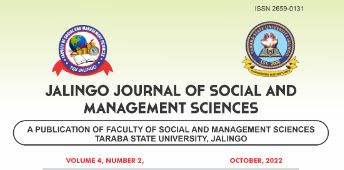Effects of Petroleum Profit Tax and Company Income Tax on Economic Growth in Nigeria
Keywords:
Taxation, Economic Growth, Regression Analysis, NigeriaAbstract
This study examines the effects of taxation on economic growth in Nigeria. Specifically, the study investigates the effect of petroleum profit tax, company income tax, and custom and excise duty on the real gross domestic product in Nigeria. The study adopted ex-post facto. The study made use of secondary data obtained from the Central Bank of Nigeria Statistical Bulletins for the relevant years. The hypotheses were tested using unit root test and regression analysis statistical tool. This study revealed that a significant relationship exists between petroleum profit tax and gross domestic product. However, the positive relationship between petroleum profit tax and gross domestic product is not that significant compared to other variables under study. This is as a result of OPEC production/sales quota as well as continuous drop in crude oil prices at the international market over a decade now which is impacting negatively on the profits subject to tax of the oil companies operating in Nigeria. There is also a significant relationship between company income tax and gross domestic product. Similarly, there is a significant relationship between custom and excise duty and gross domestic product. This significant result can be attributed to enhanced efficiency in custom and excise duty revenue collection, administration, advocacy and the recent broadening of tax base for custom and excise duty collection. The study recommends that given the dwindling revenue from petroleum related sources, the government should embark on the strategic pursuit of broadening the economy with the view to enhancing economic growth and development.

Downloads
Published
Issue
Section
License
Copyright (c) 2023 JALINGO JOURNAL OF SOCIAL AND MANAGEMENT SCIENCES

This work is licensed under a Creative Commons Attribution-NonCommercial 4.0 International License.
